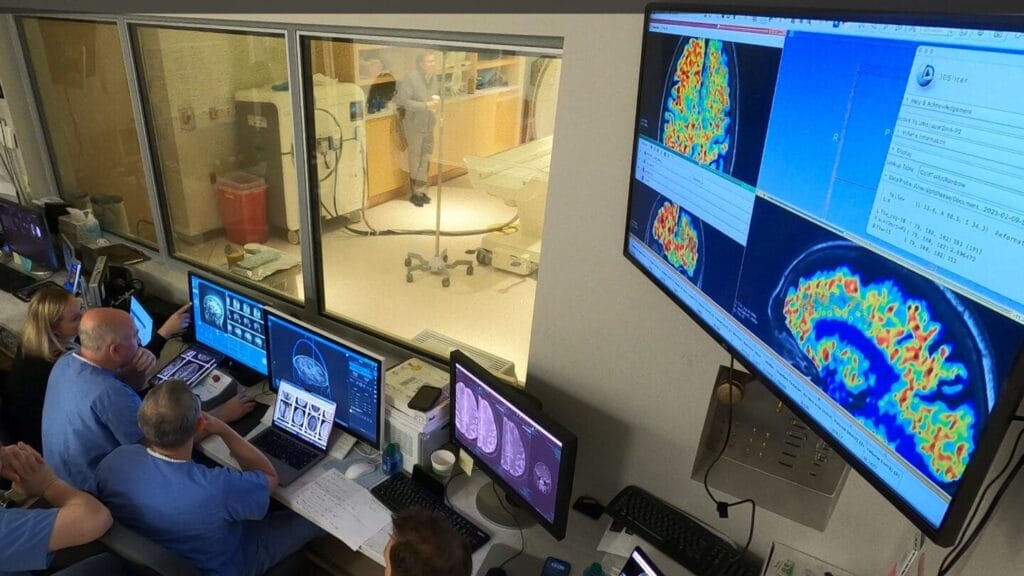
The past year has held major breakthroughs in Alzheimer’s treatment, including new drugs to tackle the disease. Now researchers may have found a way to deliver those drugs faster.
Should the technology prove viable, it adds a powerful new wrinkle in how assisted living and memory care providers can aid residents living with Alzheimer’s and help families weigh options.
By using focused ultrasound technology, the researchers were able to “open” the blood-brain barrier and deliver more of a drug, Biogen’s aducanumab (Aduhelm), in certain areas of the patient’s brain. In the brain regions that the ultrasound targeted — the scientists limited the ultrasound to one hemisphere — the treatment was more effective, the study showed.
Many Alzheimer’s drugs, including aducanumab, target toxic beta-amyloid proteins that have built up in the brain, thought to be responsible for the disease and cognitive decline.
Early last year, the US Food and Drug Administration approved a new Alzheimer’s drug, lecanemab (Leqembi), that targets amyloid plaques in the early stages of the disease. The drug’s effectiveness is promising enough that it has prompted a review of policies around how and when people can get PET scans.
The inability for many drugs to effectively cross the blood-brain barrier has meant that many treatments for Alzheimer’s require stronger doses and more frequent therapies, the researchers noted.
The investigators noted that the pilot study would need to be followed up by further studies before the drug-delivery practice could go into widespread use.
The research was conducted by scientists at the West Virginia University Rockefeller Neuroscience Institute.
“This is an exciting time in the treatment of Alzheimer’s disease,” study co-author Marc Haut, PhD, director of the RNI Memory Health Clinic, said in a statement. “We are hopeful that the work we are doing may lead to improvements in outcome for many other patients and their families coping with Alzheimer’s.”
The study was published Thursday in The New England Journal of Medicine.




